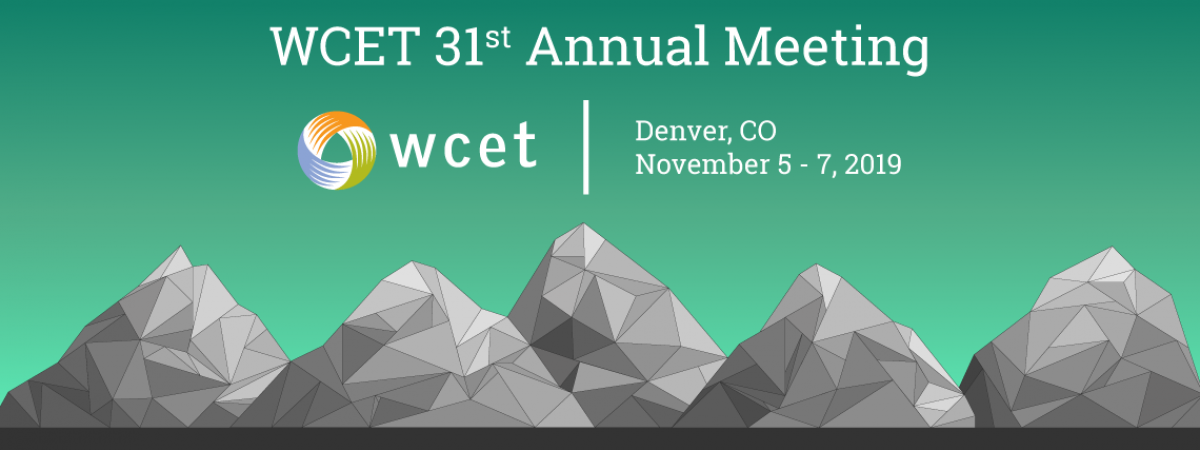In just a few short weeks WCET will convene this year’s Annual Meeting in beautiful Denver, CO. This year’s meeting promises to be full of outstanding sessions and great networking opportunities. One of the sessions will be offered by one of our sponsors, Cengage: “Transforming Students to Employees – Highlights of the Most In-Demand Employability Skills.” To introduce this topic and get us excited for the Annual Meeting, Frontiers welcomes Corina Santoro, the director of the employability initiatives and Cengage Unlimited Centers.

Thank you Corina for today’s post!
Are you joining us in Denver? It’s not too late to register!
Enjoy the read and enjoy your day,
Lindsey Downs, WCET
Your Employability Strategy
Last spring, I had the opportunity to share some thoughts on soft skills – what they are, why they matter, how they contribute to employability and why the future of work demands them. If you missed that post, you can catch up on the stats in this Frontiers article here.
Since then, I’ve continued this conversation by speaking with educators across the country, often hearing similar themes:
- What’s our affordability strategy?
- How are we making education more accessible?
- How are we helping students overcome life challenges that inhibit learning?
- How are we improving students’ retention?
These are all fantastic questions and listening to the initiatives underway is truly energizing. Then it’s my turn to speak. I get up and drop my employability bomb on the group:
“We all know the primary reason students pursue education is to get a job or a better job—yet employers consistently tell us students graduate without the requisite skill set to be successful. When it comes to hiring, a whopping 92 percent of HR professionals tell us that soft skills matter as much or more than hard skills. And while 96 percent of Chief Academic Officers believe they’re doing a good job of preparing students to enter the workforce, only 11 percent of business leaders agree. Like it or not, computers are changing our future jobs. Futurists—those who study the future of work—agree that the demand for soft skills will grow and increase in importance. So, what will be your employability strategy?”
I’ve yet to have a room that doesn’t go silent.
This is the crux, right? Yes, education should be affordable and accessible. Yes, we need to do everything we can to eliminate a student’s barrier to learning success. Yes, these are critically important. But what’s the point in solving those problems if we persist in failing to prepare students to successfully enter the workforce?
What remains is a broken system under attack—but working together, we can create solutions.
These are hard problems to solve, but that makes solving them all the more worthwhile. And the beautiful thing is that, working together, they can be solved.
Employability Solutions
As you might expect in a room full of passionate educators, the room doesn’t stay silent. Institutions are, of course, providing resources to help students enter the workforce. For example, many institutions have:
- Combined academic and career advising services to better connect student’s educational choices to their career goals.
- Career services such as resume help or interview preparation.
- Leveraged relationships with local employers help students make connections and have jobs waiting for them at graduation.
- Employer advisory boards to ensure their programs teach the marketable skills employers are looking for.

- Structured internship and co-op programs to incorporate real world experience as part of the educational process.
There is, however, a general acknowledgement that more needs to be done to change the current education narrative in our country. The time has come to transition from talking about this employability problem to actioning on it.
Actioning on Employability
Instead of continuing to talk about this problem, how can you start working on a solution? It’s time to consider the following questions:
- How can you and your institution engage employers to validate and align on skills?
- Where can you embed employability skills into your existing curriculum?
- Where and how can you expose your students to employability skills outside of their courses?
- And, of course, what is your employability strategy?
After nearly two years of research with employers, Cengage has developed an Employability Skill Framework with entry-level skill sets desired by employers in all industries. By integrating these skills into our courseware, students complete their educational experiences with the skills necessary to step more directly into the workplace and their careers. Still, evolving courseware is an extensive process that doesn’t happen overnight. The Cengage Unlimited Career Center provides every student with the ability to explore career paths, learn the market-demanded baseline for employability skills, and gain ideas of how to successfully transition into the workplace.
 Collaborating with our institutional partners as they work within their existing structures to close the employability skill gap, we’ve started brainstorming alternative ways to reach students. Some institutions are exploring how they might integrate our employability skill learning modules programmatically across their curriculum. Others are looking to boost the effectiveness of their early alert and retention systems by replacing manpower intensive workshops with digital lessons. Others still are interested in creating turnkey programs that can be implemented by departments lacking the funding for robust career centers.
Collaborating with our institutional partners as they work within their existing structures to close the employability skill gap, we’ve started brainstorming alternative ways to reach students. Some institutions are exploring how they might integrate our employability skill learning modules programmatically across their curriculum. Others are looking to boost the effectiveness of their early alert and retention systems by replacing manpower intensive workshops with digital lessons. Others still are interested in creating turnkey programs that can be implemented by departments lacking the funding for robust career centers.
You, too, might have creative ideas. We’d love to hear from you. Together, we can change this narrative, providing students with affordable access to quality education that closes this employability skill gap and confidently prepares them for workplace success.
To keep exploring this topic, join us on Tuesday, November 5 at 2:15 p.m. GMT during the WCET Annual Meeting, as we discuss transforming students into employees.
Learn more about Cengage resources at the Cengage Unlimited Career Center or, if you are an institutional leader looking to bring career resources to your campus at-scale, connect with our Cengage Unlimited Institutional team.

Corina Santoro
Sr. Product Director, Cengage Unlimited
Student Success & Employability, Cengage



 Collaborating with our institutional partners as they work within their existing structures to close the employability skill gap, we’ve started brainstorming alternative ways to reach students. Some institutions are exploring how they might integrate our employability skill learning modules programmatically across their curriculum. Others are looking to boost the effectiveness of their early alert and retention systems by replacing manpower intensive workshops with digital lessons. Others still are interested in creating turnkey programs that can be implemented by departments lacking the funding for robust career centers.
Collaborating with our institutional partners as they work within their existing structures to close the employability skill gap, we’ve started brainstorming alternative ways to reach students. Some institutions are exploring how they might integrate our employability skill learning modules programmatically across their curriculum. Others are looking to boost the effectiveness of their early alert and retention systems by replacing manpower intensive workshops with digital lessons. Others still are interested in creating turnkey programs that can be implemented by departments lacking the funding for robust career centers.
